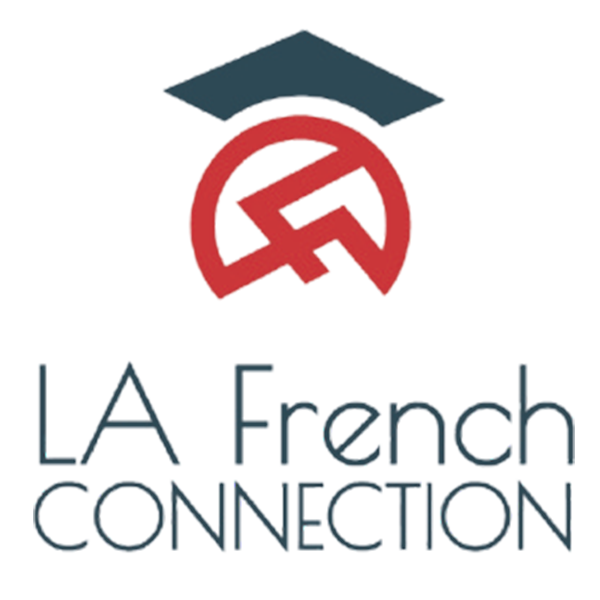A1 vs A2 French: What’s the Difference?

Understanding the difference between A1 and A2 French levels is crucial for anyone beginning their language learning journey. At La French Connection Institute, we help students navigate these foundational levels with clear guidance and structured learning paths. Whether you’re preparing for the French A1 exam or progressing to A2 level French, knowing what each stage entails will help you set realistic goals and measure your progress effectively.
Understanding CEFR Levels
The Common European Framework of Reference for Languages (CEFR) divides language proficiency into six levels: A1 and A2 (beginner), B1 and B2 (intermediate), and C1 and C2 (advanced). These levels provide a standardized way to assess language skills across reading, writing, listening, and speaking.
French A1 Level: The Absolute Beginner Stage
The A1 level French represents the first step in language acquisition. At this stage, learners can:
- Understand and use familiar everyday expressions
- Introduce themselves and ask basic personal questions
- Interact in simple ways if the conversation partner speaks slowly
- Recognize common words and phrases related to immediate needs
A typical French A1 course covers:
- Basic greetings and introductions
- Numbers, dates, and telling time
- Simple questions about family, work, and surroundings
- Shopping and ordering food vocabulary
- Present tense of common regular verbs
The French A1 exam evaluates these fundamental skills through simple tasks like filling out forms with personal information or understanding basic notices and posters.
At La French Connection Institute, our A1 French course focuses on building confidence in these essential communication skills through interactive activities and practical exercises.
A2 Level French: The Elementary Stage
Progressing to A2 level French means developing more functional language abilities. At this stage, learners can:
- Understand sentences and frequently used expressions
- Communicate in routine tasks requiring simple information exchange
- Describe in simple terms aspects of their background and immediate environment
- Handle short social exchanges
The French A2 level syllabus typically includes:
- Expanded vocabulary for daily activities
- Past and future tenses
- Giving directions and simple instructions
- Making comparisons
- Expressing likes, dislikes, and preferences
- Writing short, simple notes and messages
The French A2 level course at La French Connection Institute helps students move beyond basic communication to handle more varied everyday situations.
Key Differences Between A1 and A2 French
While both are beginner levels, several important distinctions exist:
- Vocabulary Range
A1 covers about 500 words for basic survival French, while A2 expands to approximately 1,000 words for more varied communication. - Grammar Complexity
A1 focuses primarily on the present tense, while A2 introduces past (passé composé) and future tenses. - Conversation Ability
A1 learners can manage very short exchanges, while A2 students can sustain slightly longer conversations on familiar topics. - Comprehension Skills
A2 learners understand more varied speech and can catch the main points in clear standard speech. - Writing Proficiency
A1 focuses on filling forms and writing simple phrases, while A2 includes short paragraphs and simple letters.
Choosing the Right Starting Point
At La French Connection Institute, we help students determine whether to begin with an A1 French course or progress directly to A2 through:
- Free Placement Tests
Assessing current abilities across all language skills - Learning History Evaluation
Considering previous French exposure or study - Goal Assessment
Aligning the starting level with personal objectives
Many complete beginners benefit from starting at A1 to build a solid foundation, while those with some prior exposure may test into A2.
Exam Preparation for A1 and A2 Levels
Both levels have official certification exams like DELF that validate your proficiency:
French A1 Exam Content:
- Listening to very simple conversations
- Reading basic notices and signs
- Writing simple forms and sentences
- Short speaking interactions
A2 Level French Exam Content:
- Understanding slightly more complex dialogues
- Reading short texts and finding specific information
- Writing simple letters and descriptions
- Participating in brief conversations on familiar topics
La French Connection Institute offers specialized preparation for these exams, helping students understand the formats and develop test-taking strategies.
Beyond Beginner Levels: Why French Matters
While A1 and A2 represent early stages, they provide crucial foundations for:
Immigration Advantages
- Building toward the B2 level is needed for Canadian immigration points
- Preparing for TEF/TCF exams that require stronger French skills
Career Opportunities
- Entry-level bilingual positions in tourism and customer service
- Foundation for professional French language development
- Increased employability in multinational companies
Academic Pathways
- Meeting basic language requirements for some study programs
- Preparing for more advanced university-level French courses
- Qualifying for exchange programs in French-speaking countries
Progressing Through the Levels
At La French Connection Institute, we typically recommend:
- A1 Level
80-100 hours of study for complete beginners - A2 Level
An additional 100-120 hours after completing A1
Many students complete both levels in 4-6 months with consistent study (8-10 hours weekly). Our structured programs ensure steady progress through:
- Weekly skill-building sessions
- Regular progress assessments
- Practical application activities
- Cultural immersion components
Common Challenges and Solutions
Beginning learners often face:
- Pronunciation Difficulties
Solution: Our phonetic training and native speaker modeling - Verb Conjugation Confusion
Solution: Visual learning aids and pattern recognition techniques - Listening Comprehension
Solution: Graduated listening exercises with varied accents - Speaking Confidence
Solution: Small group practice and supportive correction - Vocabulary Retention
Solution: Spaced repetition systems and contextual learning
Why Choose Structured Learning?
While self-study is possible, La French Connection Institute’s guided approach offers:
- Expert Curriculum Design
Proper sequencing of concepts for optimal learning - Immediate Feedback
Correction of errors before they become habits - Motivational Support
Encouragement through challenging phases - Cultural Context
Understanding language within its cultural framework - Accountability
Regular classes maintain consistent progress
Next Steps in Your French Journey
Ready to begin or continue your French learning?
- Take our free level assessment
- Consult with our language advisors
- Select your appropriate course level
- Start building your French foundation
- Progress toward your language goals
With La French Connection Institute’s proven methodology, you’ll move confidently through A1 and A2 levels toward French proficiency that opens new opportunities.
